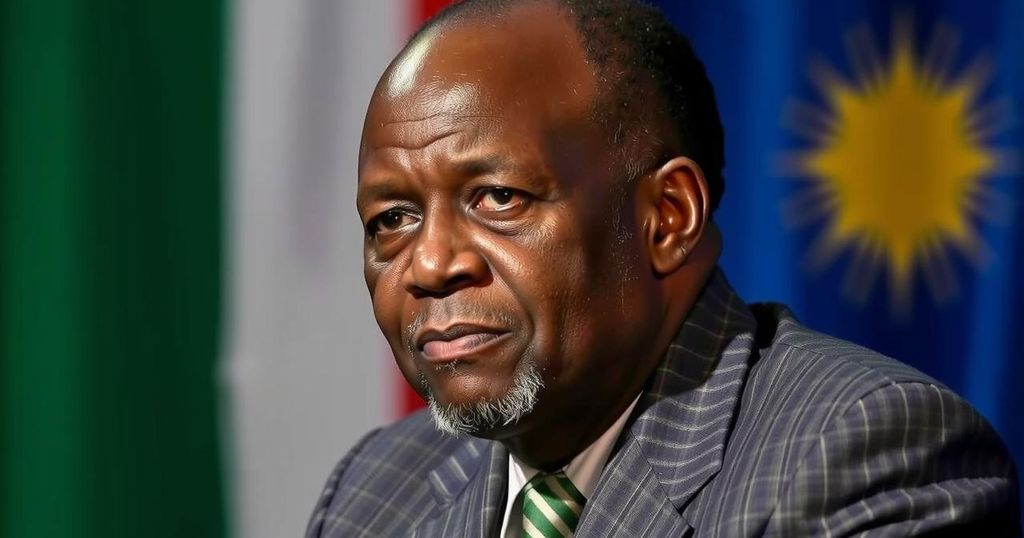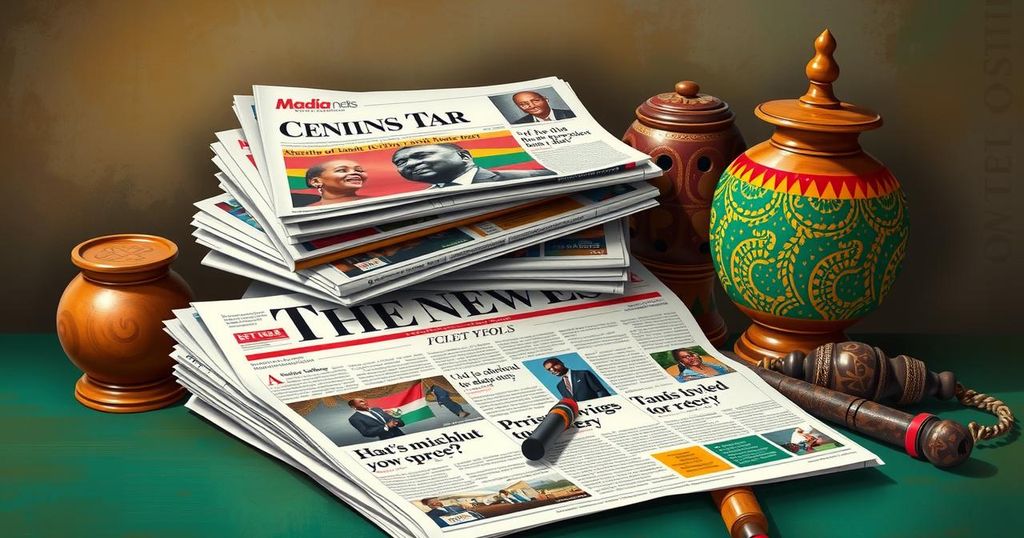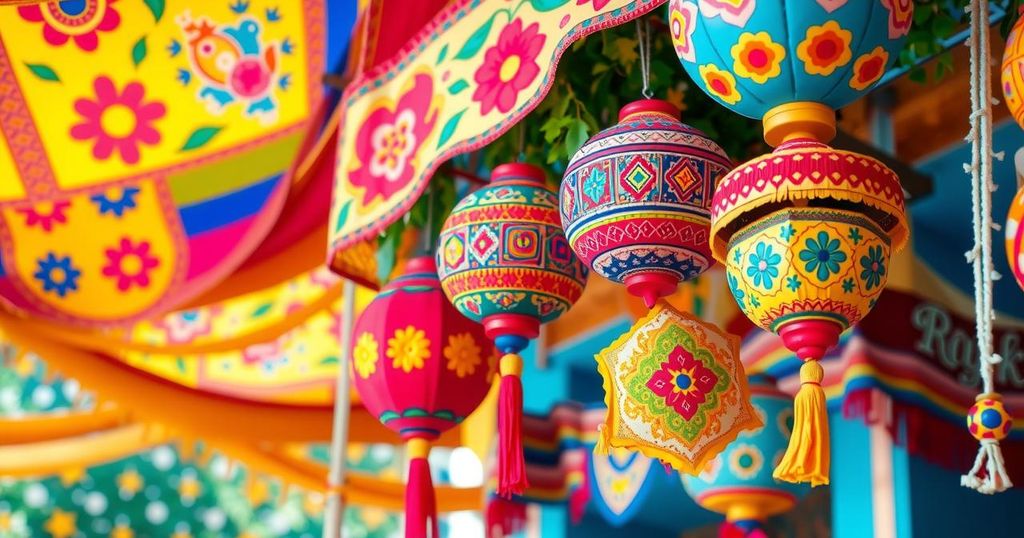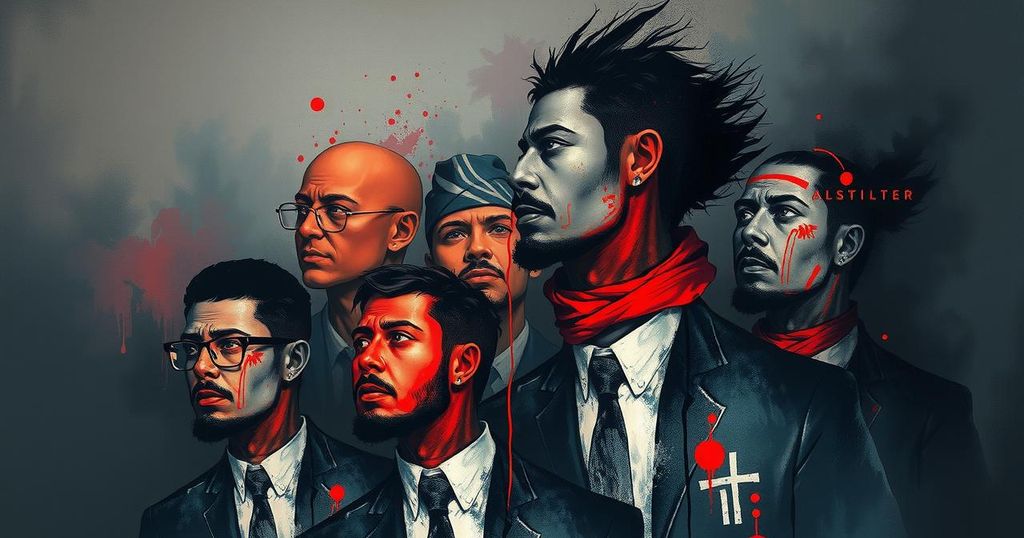Duma Boko Breaks Botswana Democratic Party’s 50-Year Political Hold
Duma Boko has successfully unseated the Botswana Democratic Party after over 50 years, becoming the next President of Botswana. His educational background as a human rights lawyer and his commitment to economic reforms have garnered him significant public support. Despite facing three previous electoral defeats, Boko’s establishment of the UDC was integral to his success, showcasing his determination against political adversity.
In a historic political shift, Duma Boko has become Botswana’s next President, marking a significant milestone by unseating the long-established Botswana Democratic Party (BDP), which had maintained dominance for over five decades. Boko, a Harvard-educated human rights attorney, resonated with the youth and citizens grappling with economic hardships, advocating for necessary economic reforms, job creation, and government financial support. His approach, characterized by kindness and strong communication skills, allowed him to cultivate a broad base of public support. Boko’s path to leadership was fraught with obstacles, particularly as this election victory followed three unsuccessful attempts. To enhance his prospects, he spearheaded the establishment of the Umbrella for Democratic Change (UDC), an alliance aimed at consolidating the opposition against the BDP. This strategic move was vital, especially given the previously fruitless years he spent leading the Botswana National Party. His perseverance exemplifies his unwavering commitment to principle, illustrating his determination in overcoming the entrenched political dominance of the BDP.
The Botswana Democratic Party has historically been the ruling party in Botswana, retaining power for over 50 years. This long-standing tenure has created a challenging landscape for opposition parties. Duma Boko’s rise provides a unique perspective on the dynamics of Botswana’s political system, particularly his ability to rally support among younger voters and those affected by economic issues. The formation of the UDC signifies a strategic effort to unify opposition forces, reflecting a shift in the country’s political fabric.
Duma Boko’s election as President of Botswana symbolizes a pivotal shift in the country’s political landscape, as he breaks the BDP’s lengthy hold over governance. His emphasis on economic reforms and his ability to connect with the electorate, especially the youth, played crucial roles in his victory. Despite enduring setbacks, Boko’s resilience and strategic coalition-building through the UDC underscore the potential for change in Botswana’s political dynamics moving forward.
Original Source: www.africa.com




Post Comment